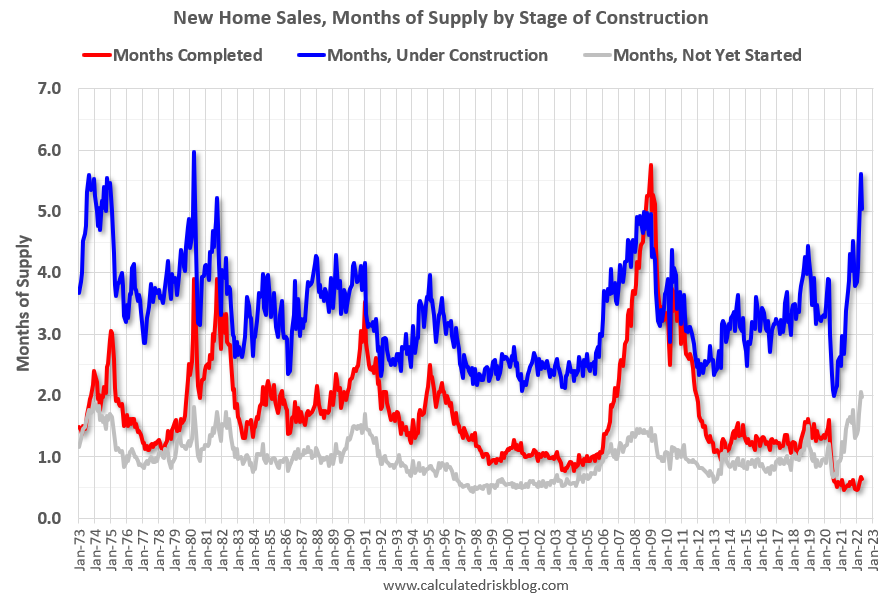Real estate compliance consultant and former California Department of Real Estate (DRE) investigator, Summer Goralik, offers six tips for staying in compliance with real estate laws. Visit the original post on her Expert DRE Compliance blog.
If you are a real estate licensee, let’s talk shop for a moment. The California Department of Real Estate does not care about your financial success. They only care about your compliance. And in my opinion, compliance means more now than ever.
When I worked at DRE as an investigator in 2008, I had complaints a mile high. I was forced to prioritize cases, meaning I dealt with the most serious complaints involving impersonation and fraud first. This also meant that potential complaints about minor or technical breaches of the law that did not harm the public were not as urgent.
As a former DRE investigator turned real estate compliance consultant, I can personally tell you that times have changed. While the DRE continues to receive and rightfully prosecute complaints of alleged fraud, misrepresentation and other dishonest and willful acts committed by real estate licensees, they also take disciplinary action against agents and brokers for other violations such as the use of unlicensed fictitious business names and advertising violations.
I realize that this finding might elicit different reactions, but the primary message is quite simple. If you’re a real estate professional, you prioritize compliance now, or you’re likely to pay for your non-compliance in some form later. By “payment” I mean potential citations and fines (up to $2,500 per licensee) imposed by the Department or higher fines and enforcement costs related to a DRE enforcement action. In addition, some real estate licensees who fail to comply incur significant legal defense costs to resolve such regulatory matters and avoid license discipline.
Of course, let’s not forget that licensees will constantly “pay” for potential violations with the DRE by publicly disclosing their disciplinary actions on the ministry’s website. Additionally, a licensee with a prior disciplinary record or a “disability licensee” may continue to be on the DRE’s radar.
Related Feature: DRE Hot Seat: Real Estate Law Violations
Given the stakes, the right path for real estate licensees is an upfront investment in compliance. Here are some compliance tips and reminders to help realtors and agents stay honest.
TIP #1: Keep your real estate license active and current
Although it sounds like this might not be worth a reminder, trust me, it is. I wrote an entire article on this topic last year, as I noticed that this seemingly simple task was causing many licensees problems. Surprisingly, real estate licenses expire and expire all the time, and agents and brokers will continue to carry out licensed activities with an inactive license, also known as “unlicensed activity”. In reality, this mistake, innocent or not, could be costly as the DRE has initiated enforcement actions against licensees for this type of activity.
What do I mean by “active and current?” On the same subject : Stock market activity ‘indicator’ of what will happen in the real estate market: Expert.
Editor’s Note – Keep your salesperson or broker license active and current with the First Tuesday 45-hour DRE Continuing Education.
TIP #2: A real estate salesperson can only work for one broker
If you are an agent, you may only associate your license with one agent at a time to perform the licensed work. In other words, this means that you cannot work for more than one broker. If you are a real estate agent but have multiple jobs, be aware that only one of those jobs can use and rely on your real estate license.
For example, if a real estate agent is a dentist during the week and an active agent on the weekend, this activity is not against the law. See the article : Politics can affect family dynamics as father considers disowning son. However, if a real estate agent works for “Agent A” during the week and “Agent B” at the weekend, then you are violating the Real Estate Act and may be subject to disciplinary action.
TIP #3: Real estate commissions flow from the brokerage to the agent
Real estate salespeople and brokerage associates acting as salespeople for other brokers may only receive compensation from their affiliate broker for licensed activities. See the article : Transylvania meets California in the first trailer for Netflix’s Day Shift. They may not request, receive or accept any fees, commissions or other payments for licensed activity directly from their customers.
Intermediary activities: agent of the agent
It should be noted that there is a known exception here. The DRE said that a broker may authorize or direct a deposit holder to pay the broker’s commission directly to him or her, but only so long as the broker has control over and participates in the disposition of the commissions earned.
An excellent article published by DRE on this topic that I always refer clients to is available in the Spring 2012 Real Estate Newsletter (starts at the bottom of page 1). If you are interested, this article explores other possible legal activities related to this topic.
TIP #4: Know the law before you advertise
These days, advertising compliance is more important than ever! Agent and company real estate advertising, especially digital advertising, is constantly on display for all to see and critique. This means DRE is just a few mouse clicks away from instantly assessing the compliance of your advertising. If you are interested, you can refer to the article I wrote some time ago about digital advertising.
I constantly tell my clients that consistent advertising is like a good gatekeeper for the entire brokerage. Keeping your advertising clean and compliant may help you avoid unnecessary consumer or competitor complaints and DRE investigations. You can even do yourself a bigger favor by potentially avoiding a full DRE audit or brokerage office investigation.
So, let’s break this tip down:
In addition to required DRE license disclosures, be aware that another component of advertising compliance is ensuring that advertising is never false or misleading. In this regard, many complaints have been filed against licensees for bad publicity.
ADVICE No. 5: Admin accounts require 100% compliance and commitment
Anything less than 100% will not work. It is unacceptable to be “sort of compliant” when it comes to operating and maintaining a real estate agent’s escrow account. It is an ongoing commitment and effort to ensure, without limitation, that:
Bottom line, if the above duties and requirements are not met, your real estate license is at risk and you will not have fun when the DRE finally audits you.
So what should you do if you’re only “sort of compliant” in this area? Take action or get help now. Please do not wait for the DRE to come and assess your compliance. You can start by referring to the DRE publication entitled “Trust Funds” on their website. This is a great starter pack to understand what you need to do as a broker dealing with custodial account activities. If you still need help, it may be time to hire someone to help you understand the law, assess your compliance, and correct any non-compliant activities.
Word of the week: Trust accounts
TIP #6: Agents and their brokers must work together to get it right
Broker control is everything. I say this all the time and I wrote about it a few years ago. A broker is required by law to establish and enforce policies, rules, procedures and systems for the review, control, inspections and management of all licensed real estate activities.
An effective broker that adequately oversees its agents and activities will help provide its agents with the tools to ensure regulatory success. A good agent is actually a good leader and mentor, helping agents with guidance, resources and training.
Responsibility for constant supervision
And you know what, agents play an important role too. A good broker who knows and follows their broker policy along with the law can actually demonstrate broker control. Their activities and compliance illustrate that the intermediary is doing its job. Without this compliance and in the absence of this evidence, the intermediary may find it difficult to demonstrate that it is fulfilling its supervisory duties. Interestingly, a good agent can even help the broker do his job.
For example, a good agent will sound the alarm when there is a dispute in the middle of a real estate transaction. They will immediately notify their broker and involve them in the problem resolution process. This allows the agent to make the broker aware of the problem, provide guidance or feedback, and actually take action to hopefully avoid bigger problems like a civil or regulatory complaint.
As a consultant, I see many DRE complaints involving agents who did not promptly or timely notify their brokers of transaction disputes. It is not until the broker receives the DRE inquiry that he first becomes aware of the problem. By the way, such a thing can lead to an audit or investigative investigation, where not only the activities of the agent are on the examination table, but also the control of the agent will be tested.
So brokers and agents should be able to count on each other to do the right thing, but to do it effectively they need to work together. The broker must set the agent up for success by prioritizing compliance, oversight and risk management, and the agent must strictly follow the brokerage’s policies and keep the broker informed of any real or potential problems. When these two things work in harmony, true harmony is possible.
Final Note
I hope these tips are a good reminder of what should be going on, or maybe help start a new lease on compliance. As I said, compliance is more important than ever. Don’t wait for the DRE to tell you that you are out of compliance. This is a financial problem and regulatory risk that you can certainly help avoid by taking proactive steps now.






